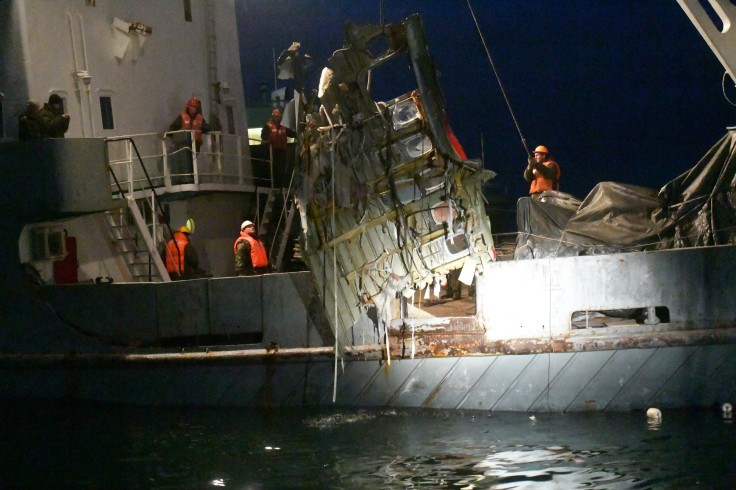Russia plane crash: Tupolev-154 main black box reveals faulty flaps

The main black box of Russia's jet plane, Tupolev-154, has revealed that the plane's flaps were faulty before it crashed into the Black Sea. The latest findings came from an alleged cockpit conversation between the plane's two pilots.
Flaps are panels on the wings of the plane that help lift an aircraft. However, according to the information received by the Interfax news agency, the flaps on the tragic T-154 were not moving together, leading to the pilots losing control. It could be heard in the black box's conversation that one pilot said the word flaps.
According to BBC.com, a new site close to the Russian security agencies called Life has the transcript of the cockpit recording.
"The flaps, hell, what a…!"
"The altimeter [altitude metre]!"
"We're in… (inaudible)."
Alarm sounds about dangerous proximity to the ground
"(Inaudible)."
"Commander we're falling!"
Earlier, an audio recording was played imposing the final conversation between the plane's crew and the air traffic controllers. In the recording, it didn't reveal any sign of difficulties the plane experienced.
Terrorism was ruled out by investigators, who instead concentrated on human error, including a technical fault or combination of factor leading to the crash.
Tupolev-154, a Russian workhorse, was a 33-year-old model no longer flown by airlines. However, it is still used by the military. It is the backbone of the Soviet and Russian airlines for decades. There are only about 50 in service worldwide.
The plane has seen 39 fatal problems due to poor air traffic control and difficult weather conditions but few technical problems were recorded.
The recent plane crash came down off the Russian coast losing all 92 passengers and crew. On board was Yelizaveta Glinka, one of Russia's best-known humanitarian figures, and Alexandrov military music ensemble's 64 members. Currently, there were 15 bodies that have been recovered from the crash site.
On Wednesday, a second flight recorder was raised from the seabed. It is expected to reveal information about Russia's plane crash.




















